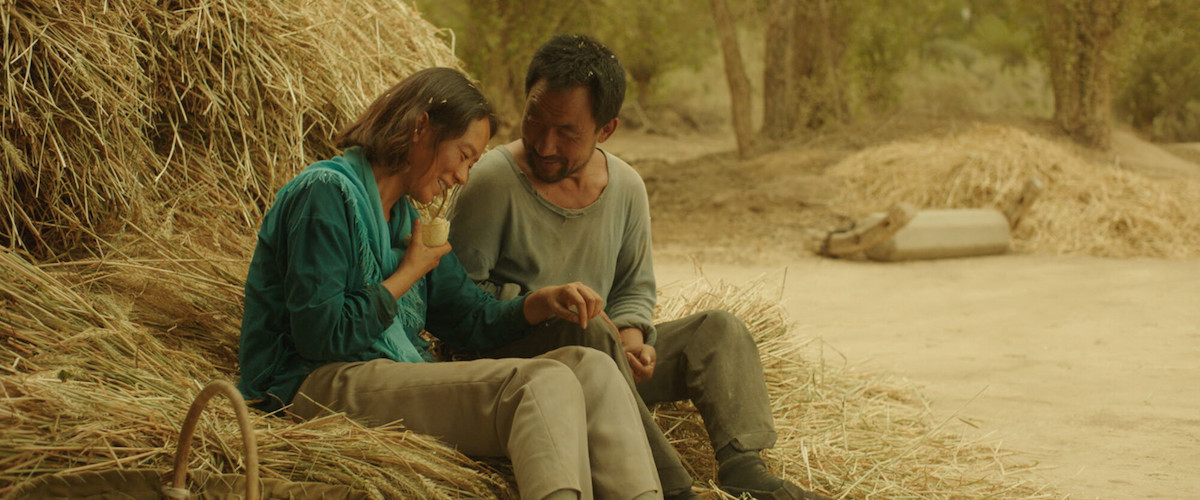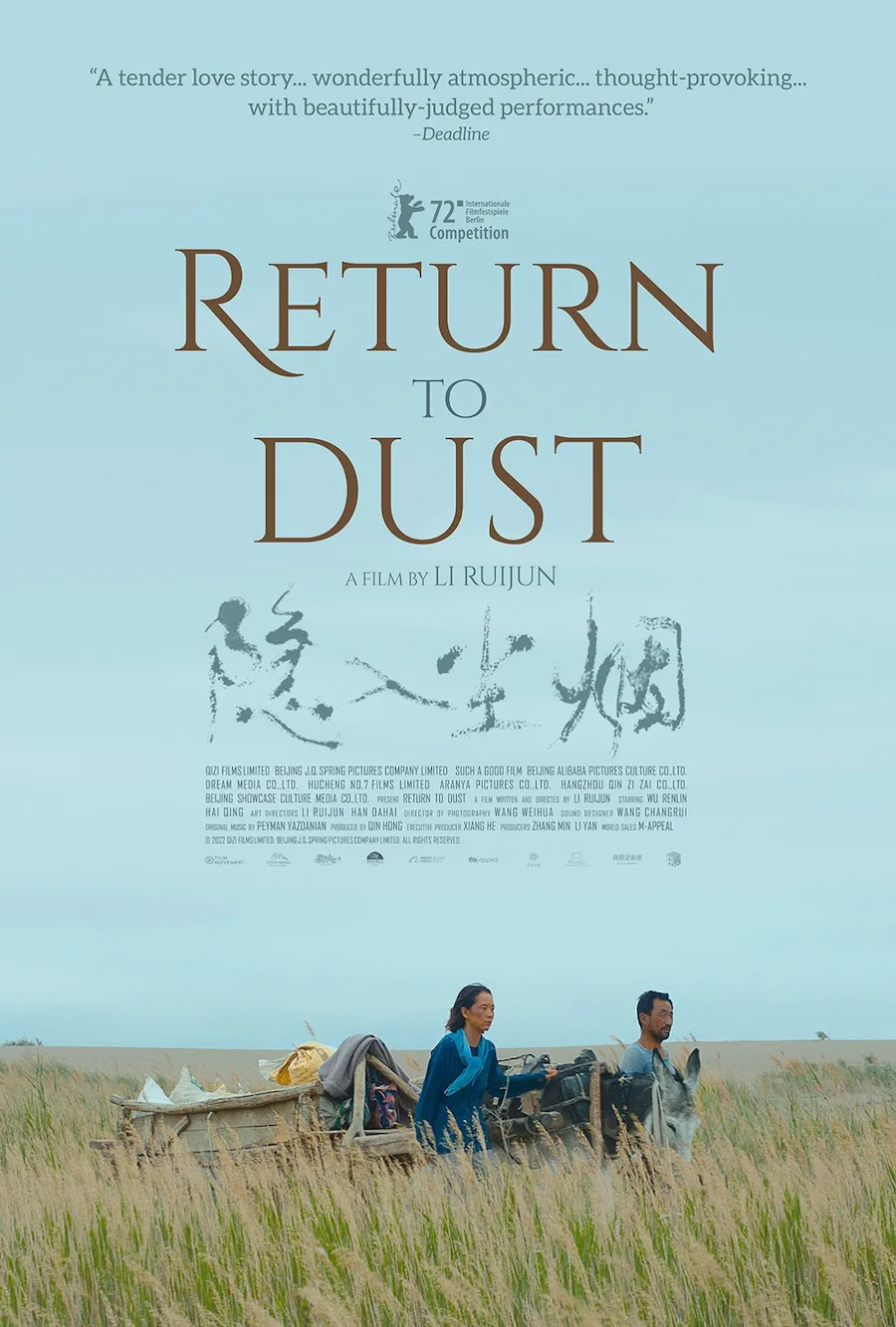Li Ruijun is a young filmmaker—he’s about 40—who seems to have a very old soul. His new film, “Return to Dust,” has gotten him in trouble with the government in his native China, gained plaudits at the Berlin International Film Festival, where it was in the running for a Silver Bear, and is now coming to the U.S., without the amendments that reportedly have been added to it in China to make its worldview more upbeat.
Every frame of this movie is exquisitely considered without seeming fussy or stagy. It helps, maybe, that the film is about humble people in humble settings. Li can frame them beautifully without prettifying poverty. Elia Kazan thought he did that in “A Tree Grows in Brooklyn”; one can disagree with this self-assessment while understanding why Kazan’s own judgment might have haunted him. In any case, Li’s directorial mojo means he can compose admirably without aestheticizing.
Set in Gansu, a rural section of China, “Return to Dust” tells a story almost as simple as its title. Ma Youtie, a small farmer with little to his name but a donkey, is placed in a sort of arranged marriage with Cao Guiyung. This couple seems to be approaching middle age, but their energy level is in the high-senior range, honestly. Both are socially awkward, and Cao is incontinent, a condition that manifests at terribly inconvenient times. Apparently, adult diapers are not a thing in Gansu.
So yes—if you’re looking for some real “counterprogramming” against “Barbie” for the weekend, this picture has you covered. But, seriously, actors Wu Renlin and Hai Qing, as Ma and Cao, respectively, play their characters like they’re unpeeling onions, so to speak. They are stiff and formal with each other; as they work Ma’s land, they lighten up and start smiling. They don’t have much to discuss, but they have a lot of labor and hardship to share. Their nights are quiet. “The old bottles in the eaves are whispering again,” Cao observes one evening. “Return to Dust” abounds in small poetic touches from the director and his lead characters.
Economically and emotionally marginalized people shunted to and fro by a largely indifferent society, if not outright hostile to them, and find some comfort and solace in each other while weathering the blows they’re obliged to take until the blows stop (they generally don’t), or the ones getting the blows give out—this, of course, was the stuff of many pictures from the not-quite-movement called Italian neo-realism. “Return to Dust” has more in common with films of that ilk than classic U.S. portraits of deprivation like “The Grapes of Wrath.” But the director departs from Western practice entirely by not making any overt move to tear at the viewer’s heartstrings. The music score is muted. The film avoids close-ups or blatantly manipulative montages. It’s quiet, but it’s not quite “Slow Cinema.”
Once Ma and Cao have successfully built a new house for themselves, more powerful forces begin to work. This apparently is where the Chinese government got concerned. An agent for the province has applied for Ma and Cao to move into an apartment building. “Where will I put my chickens?” Ma asks naively. A TV crew accompanies the couple to check out the new digs. The marrieds are more or less speechless, but not in the way the would-be hype team would like. And so on. Li doesn’t villainize the bureaucrats who upend the lives of his main characters, but he doesn’t have to; all he has to do is show how their attempts to “improve” life backfire. And so, the Chinese government attached a title card with a factitious plot wrap-up to the movie. The director’s original ending, a subtle expression of profound disappointment, is retained here.
Now playing in theaters.




















